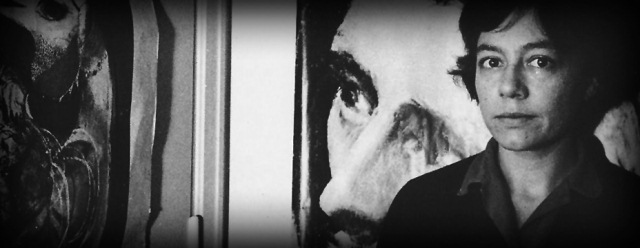
[Re-posted from a previous publication in Poems and Poetics, to mark Dennis Tedlock�s unexpected passing earlier this year. My admiration & debt to him � & that of so many others � is hardly in need of explanation, though the note below provides some of it. (J.R.)]
Advice Received
Don�t ask too many questions.
Don�t ask questions about religion.Don�t take notes in front of people.
If someone is chopping wood
don�t just stand there.
Dialogue
- I could tell you a story.
It�s the story told to all boys when they are initiated.Do you want me to it? -
- If you want to tell it go ahead. -
- Don�t say that.
Say you want me to tell the story.
1/
She looks out the window
the snow is fallingher husband went hunting for elk
the boy went along too
a neighbor thinks he saw them at Red Hill
she hasn�t seen the sun all day.
2/
She was out in the woodsgathering pine nuts
and there
under a tree
was a fawn
the fawn said
- Tie me up. �
3
The men left her in camp for the day
a wounded buckcharged right into the fire
she hit him over the head with a frying pan.
When Only The Breath Is Left
On the third day after her grandson died
she thought she heard histransistor radio playing
but that wasn�t even in the house
it was already
broken and buried.
On the fourth night
the door was left open for her grandson
she dreamed of masked dancers
in a row
she heard the cry of the deer
they all walked away
he was the one in the middle.
The Fire in Your Fireplace
You started it right up
with one match, it must beyour aunt loves you
it was quiet for awhile
but now
listen to that fire!
The flames go straight up
it roars!
Someone is hungry, it must be your
great-grandparents
every time you eat
take a little bread
a little meat
throw it in the fire, say
- Great-grandparents!
Eat! -
That�s the shortest prayer there is.
While Eating Mutton
Here are the eyes
but that means weak eyes
here is the fat around the eyes
but that means getting tears in the wind
here is the tongue
but that means getting thirsty all the time
here is the brain
but that means snoring all night
here is the heart
but that means forgetfulness
here is a bone with marrow in it
but that means hangnails
now here is the meat on the palate, with this
I�ll be able to eat cactus fruit.
Spiders
1/
A spider walked across the tablehe lit a match and burned it
then he said
- Bluebird!
That handsome Bluebird!
He�s the one who killed you!
Shrivel up his eyes!
2/
A spider bit the girl
there were big red bumps down her armbut her aunt knew the right medicine
it was the juice of the burnt Bluebird.
*
Hamid�s Instructions for Travelers
as recorded by Dennis TedlockGive a kiss on both cheeks, then a handshake, then place your hand on your heart. If it�s someone you don�t know already, say, �Peace be with you.�
When looking left or right, do not turn your head. Shift only your eyes.
Eat out of the same dish with everyone else. Use your right hand only. If you feel it necessary, use a spoon.
Read from right to left, not left to right. Be very careful with vowels. Mispronounce a vowel and it changes everything.
When using European languages, combine them in any way that conveys your intended meaning. They are hard to tell apart anyway.
When you see the printed face of the king, look for the face of his dead father in the watermark.
The person who makes change for you will think more of you if you count it.
Put God and Satan at a great enough distance to leave room for genies. You are not required to mortgage your soul to get help. You own the genie; the genie doesn�t own you.
In the market, keep an eye out for unattended cobras. Beware of people who say they�ve seen you somewhere before. If you have a tooth pulled, know that the dentist will add it to his display. If you listen to a storyteller, know that the story will never end.
Do not ask to see more than one edition of the Book. They all say the same thing. The words in red are not quotations from the Prophet, but his name. At the airport, say you bought the Book for a believer.
NOTE. Dennis Tedlock�s work as one of the co-founders of contemporary ethnopoetics is internationally known & regarded as a singular achievement of twentieth & twenty-first century poetry. By the time of our first meeting in 1970 Tedlock had already started his own pioneering work in what I soon came to call �total translation� � the still remarkable presentation in Finding the Center of spoken Zuni narrative performances as lineated compositions. Afterwards, in the manner of true poetic innovators (& with a scholar�s skills to back that up), he created a new translation of the Mayan classic, Popol Vuh, that drew on the knowledge of contemporary Mayan speakers & his own study of Mayan language & culture. This was followed by his translation of the ancient Mayan drama, Rabinal Achi, & most recently his 2000 Years of Mayan Poetry has exposed for us the full range of Mayan writing from the earliest hieroglyphic inscriptions to the works of later writers using the Roman alphabet. Sometimes overshadowed by these groundbreaking works, Tedlock�s own poetry forms a continuum with them, as in these poems, informed by his years of association with the Zunis in New Mexico


